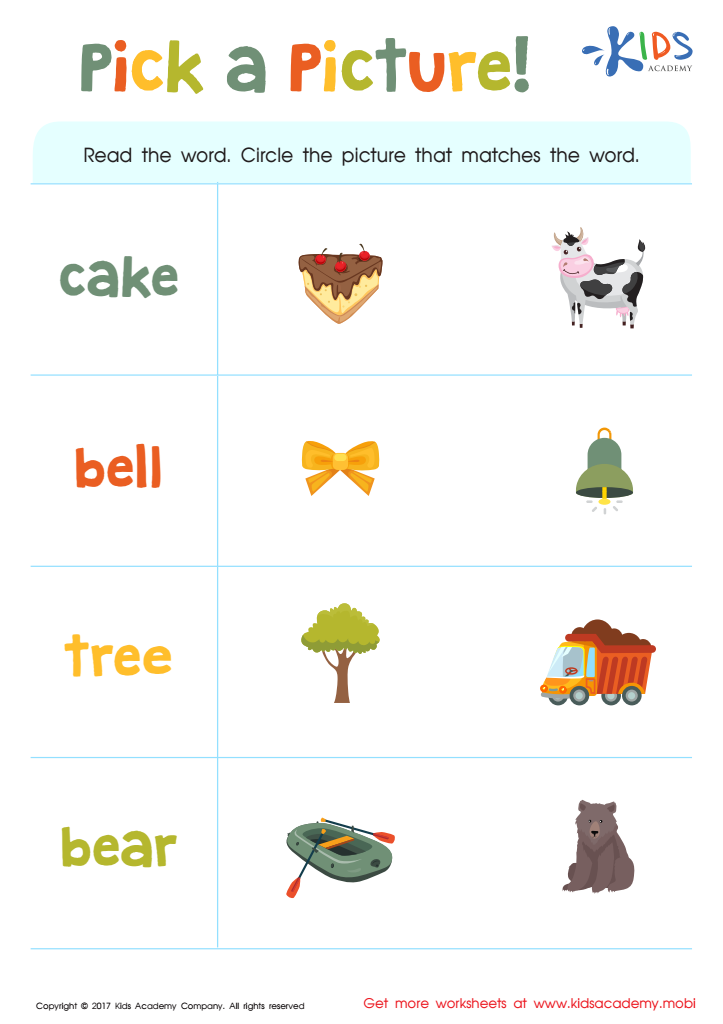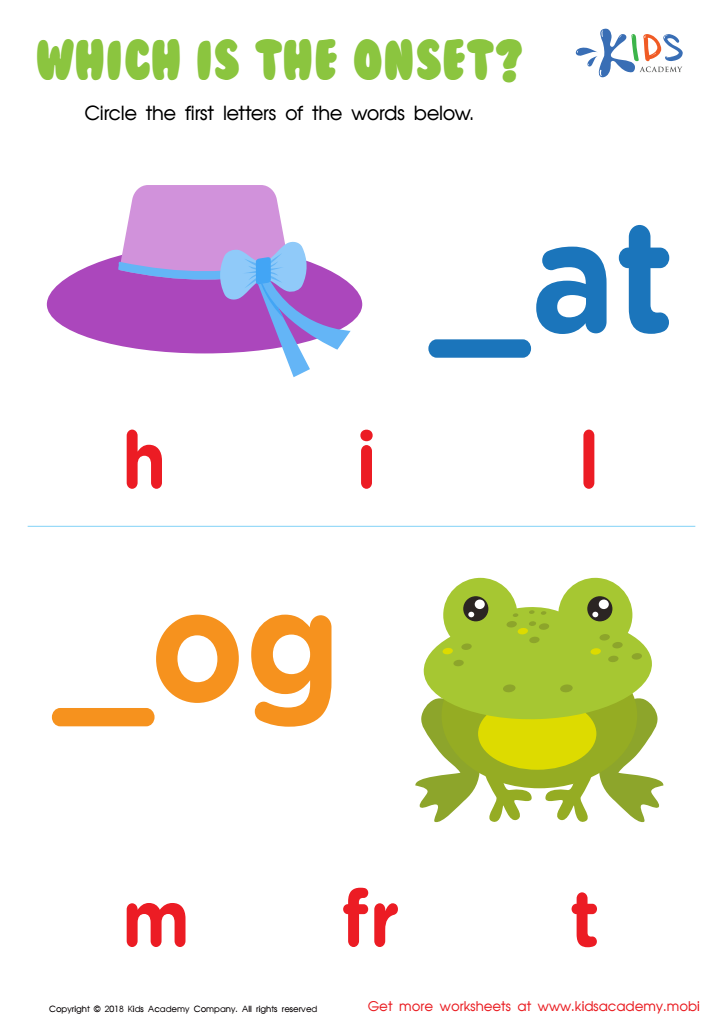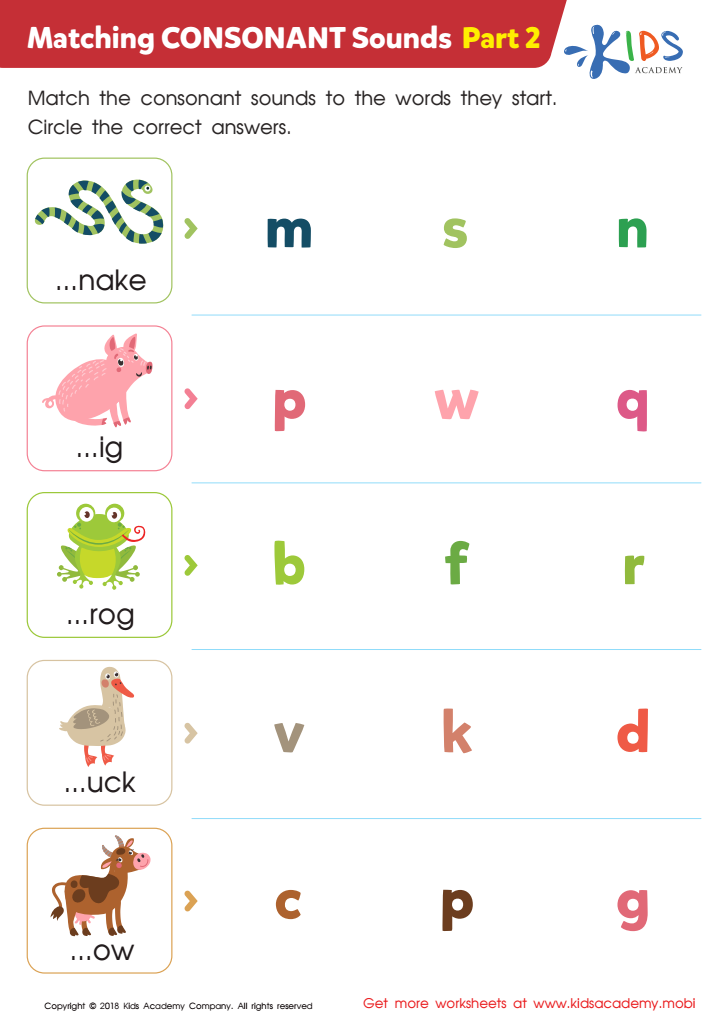Sound-letter correlation Phonics Worksheets for Ages 3-8
3 filtered results
-
From - To
Unlock the magic of reading with our "Sound-Letter Correlation Phonics Worksheets" for ages 3-8. Our expertly-crafted worksheets help children make critical connections between sounds and letters, laying a strong foundation for reading success. Fun and engaging activities are designed to captivate young minds, enhancing their phonetic skills through interactive exercises. Perfect for early learners, our worksheets provide gradual learning challenges that nurture confidence and independence in reading. Ideal for both classroom and home settings, these printable resources ensure that every child can master the essential skill of sound-letter correlation with ease and enjoyment. Explore today and inspire a lifetime love of reading!


Pick a Picture Word Recognition Worksheet


Which Is the Onset? Worksheet


Matching Consonant Sounds: Part 2 Worksheet
Sound-letter correlation, also known as phonics, is crucial for early childhood literacy and should be a focus for both parents and teachers of children aged 3-8. This foundational skill helps children understand the relationship between letters and the sounds they represent, enabling them to decode words more easily. For young learners, this skill translates into better reading fluency, which is essential for comprehensive reading development.
Children who are proficient in phonics can independently tackle unfamiliar words, boosting their confidence and encouraging a love for reading. This early success in reading can have long-term positive impacts on their academic performance across subjects, as many areas of learning require good reading skills.
Moreover, understanding phonics improves spelling, as children learn to associate sounds with letter combinations systematically. This dual benefit of enhanced reading and writing capabilities sets the stage for effective communication skills.
Involving parents in the phonics-learning process can create a supportive home environment that reinforces what is taught in the classroom. Simple activities like reading storybooks together or playing phonics games make literacy fun and engaging. By focusing on phonics at this critical developmental stage, parents and teachers lay a strong foundation for future learning and academic success.

 Assign to My Students
Assign to My Students















